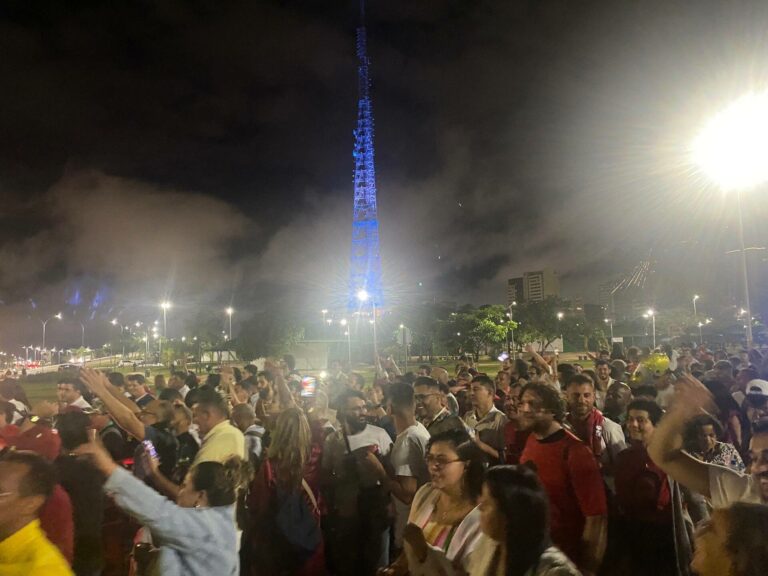The Washington Post has a slogan, “Democracy Dies In Darkness.” In the era of Trump, Bolsanaro and Putin, it has never been more important for democracy to stay out of the “darkness”.
Recently Brazil almost fell into “Darkness,” a darkness that consumed the USA with the 6 January (2021) attempted coup in Washington.
Brazil has some similarities to Greece and Australia. One aspect they all have in common is that democracy has been challenged repeatedly. Greece, despite the notion of heroism (rightly earned) of Metaxa in 1940, his government was actually a fascist dictatorship (4 August Regime) from 1936 after it shed its last remaining Venizelos ties. Democracy would return after World War II before falling to the 1967 coup of the Colonels. Better known as the Junta, the regime was a disaster as it stifled voices, exiled dissidents and precipitated the Cyprus fiasco which led to Turkey’s 1974 illegal occupation of Northern Cyprus, the final year of the Junta. It took the Cyprus invasion and the heroism of students at the Polytechneio, which included a massacre as the Greek national anthem played, to undo the regime.
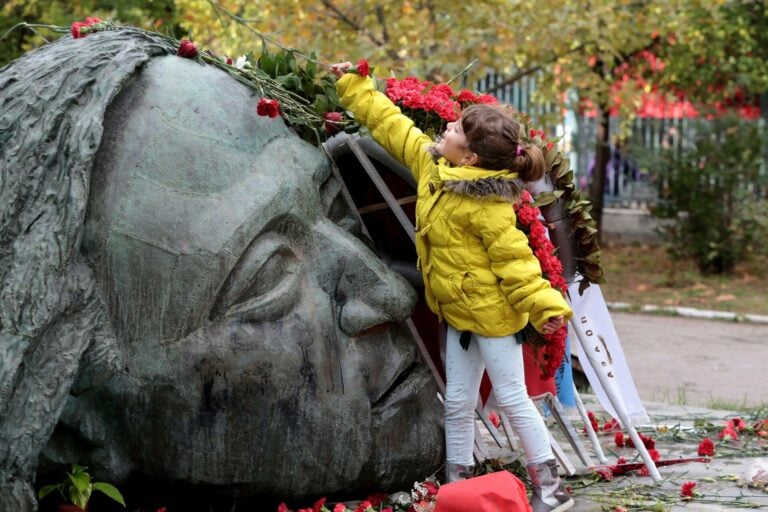
Australia has been a democracy under the Crown since 1901, a nation that adopted the White Australia Policy; the policy ended under the great Gough Whitlam. He in turn was illegally and immorally deposed by the Crown in 1975, the second time the Crown intervened in Australia after the 1932 dismissal of Jack Lang. Democracy was undermined then as it was recently when Scott Morrison secretly swore himself in to five ministries, another slap in the face for democracy.
Brazil, also a one-time colonial outpost, was under dictatorship from 1964. It took the courage of a Metaxa minus the fascism to stand up for democracy. Socrates, not the philosopher, rather the famous Corinthians’ footballer joined hundreds of thousands who routinely stood up for democracy by distributing literature, addressing rallies or wearing ‘democracia’ during matches. Lula, the incoming 2023 President didn’t have a Greek sounding name like Socrates, but his connection to Greeks and democracy is unique.

His father was named Aristides and his mother, Eurídice, was partially of South Italian descent, the area that we know as Magna Graecia! Lula is a supporter of the football team Corinthians! With such Greek “influences” around him, it is no wonder he championed some of the greatest exports of Greece…. Democracy. Free speech. Liberty.
Lula was a working-class Union leader who led campaigns against the fascist dictatorship which ended in 1985. He eventually became president between 2003-2011, overseeing a strong economy and pulling tens of millions out of poverty.
Ana Marcia, a writer and teacher who speaks Greek and is the mother of two Greek-Brazilian boys explains that “Lula was the first president to include poor people in the national budget; That was revolutionary.”
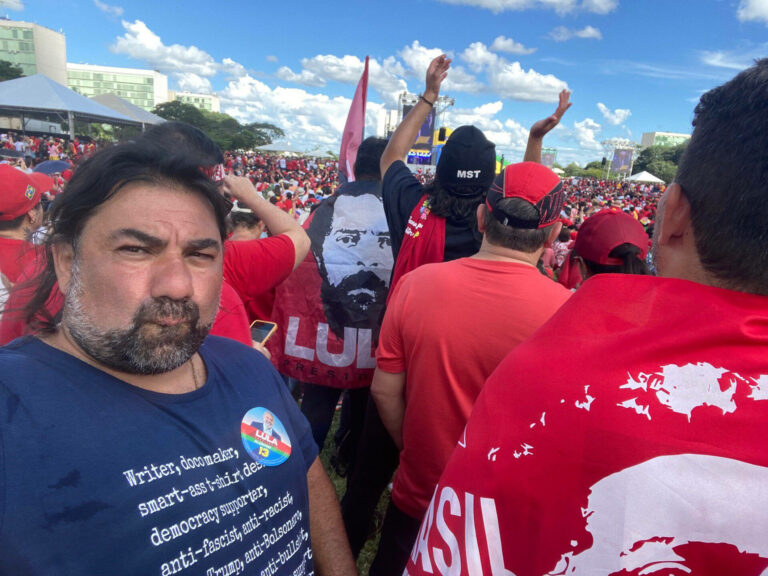
“Lula said enough with making the cake bigger we need to start sharing it with whoever is most hungry. Bolsa Família was the first income transfer program. To attain that benefit, families had to keep their kids in school. Lower middle class also benefited. Sharing the cake was also about increasing the minimum wage, which escalated to all rates of salary. That recipe was simple: if the GDP grew 5%, minimum wage would get the same raise. Not rocket science, but after decades of no real raise, again, it was revolutionary.” These are also themes similar to a Whitlam Australia and a Venizelos era Greece.
As someone who didn’t finish school, Lula championed education and antipoverty measures, in a sense a Brazilian version of the early Venizelos where a poor and backward Greece was dragged into the 20th Century. Lula sought to drag his people into the 21st Century and like many stories where fascism lurks, his nation eventually fell to elements of darkness. Just like the Dismissal of Whitlam, Lula was attacked by elites and sent to prison in 2018 for trumped up and fake corruption charges. His innocence was proven in 2021; not in time to run against the Trump of Brazil, Bolsanaro.
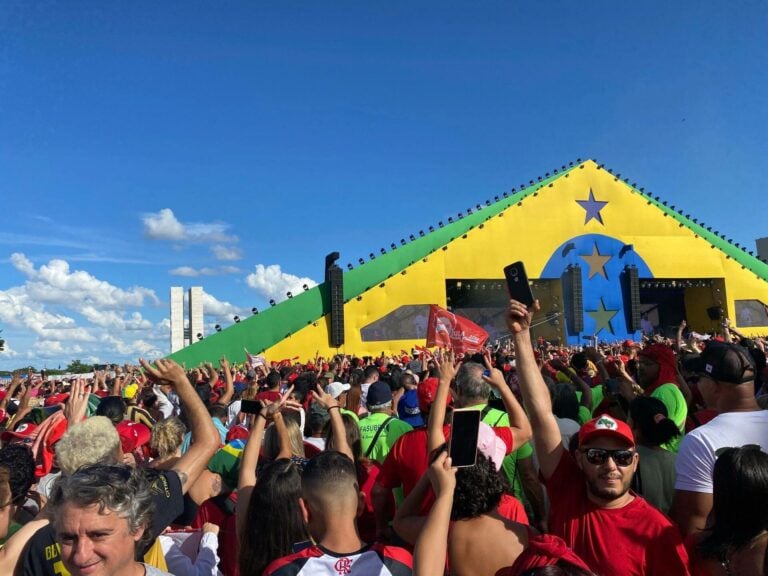
Bolsanaro, a far-right extremist, brought Brazil to the brink of the abyss on every key metric; disastrous Covid handling in a nation that has always successfully tackled viruses, poor economic performance, widespread corruption and dragging millions back into poverty. Bolsanaro was dragging Brazil towards darkness while his love of the former military dictatorship created palpitations for many people.
Nayara Santos-Costa who now lives in Sydney, explains her views on the defeat of Bolsanaro. “I believe that the election of President Lula will help the poorest population in Brazil to be seen and helped again. During the years of Lula’s government in Brazil, the low-income population had access to education, home ownership and government aid that kept them away from the extreme poverty line. Above all, it removes from power a politician who supports the dictatorship, is misogynistic, racist, bully, prejudiced and incompetent. I hope the transition will be peaceful and democracy respected.” Nayara is reminiscent of most people I have met in my travels through Brazil and elsewhere. The fact a fascist like Bolsanaro was elected in 2018 was down to the removal of Lula from the election race due to the fabricated charges against him.

Most Brazilians such as Nayara and Ana are excited for what lies ahead under better leadership.
Ana explains, “Lula created policies that would give poor people opportunities they never had, especially black and indigenous people.”
“As a kid, I always wanted to be a doctor. I didn’t get the necessary grades, basically only rich people who went to rich people’s schools their whole life would get a spot into those prestigious courses. For me, a teacher’s daughter, no fancy schools, no English classes, no traveling around, another teacher’s degree would be the best I could aim for, despite my efforts. Now, because of Lula, even the poorest uneducated worker’s kids have the opportunity of becoming doctors, engineers, scientists. Again, revolutionary. So here’s what Lula means to me: a kind of institutional ongoing revolution. No heads being chopped. No means of production being confiscated. Just giving the people the bare minimum, plus real opportunities.”
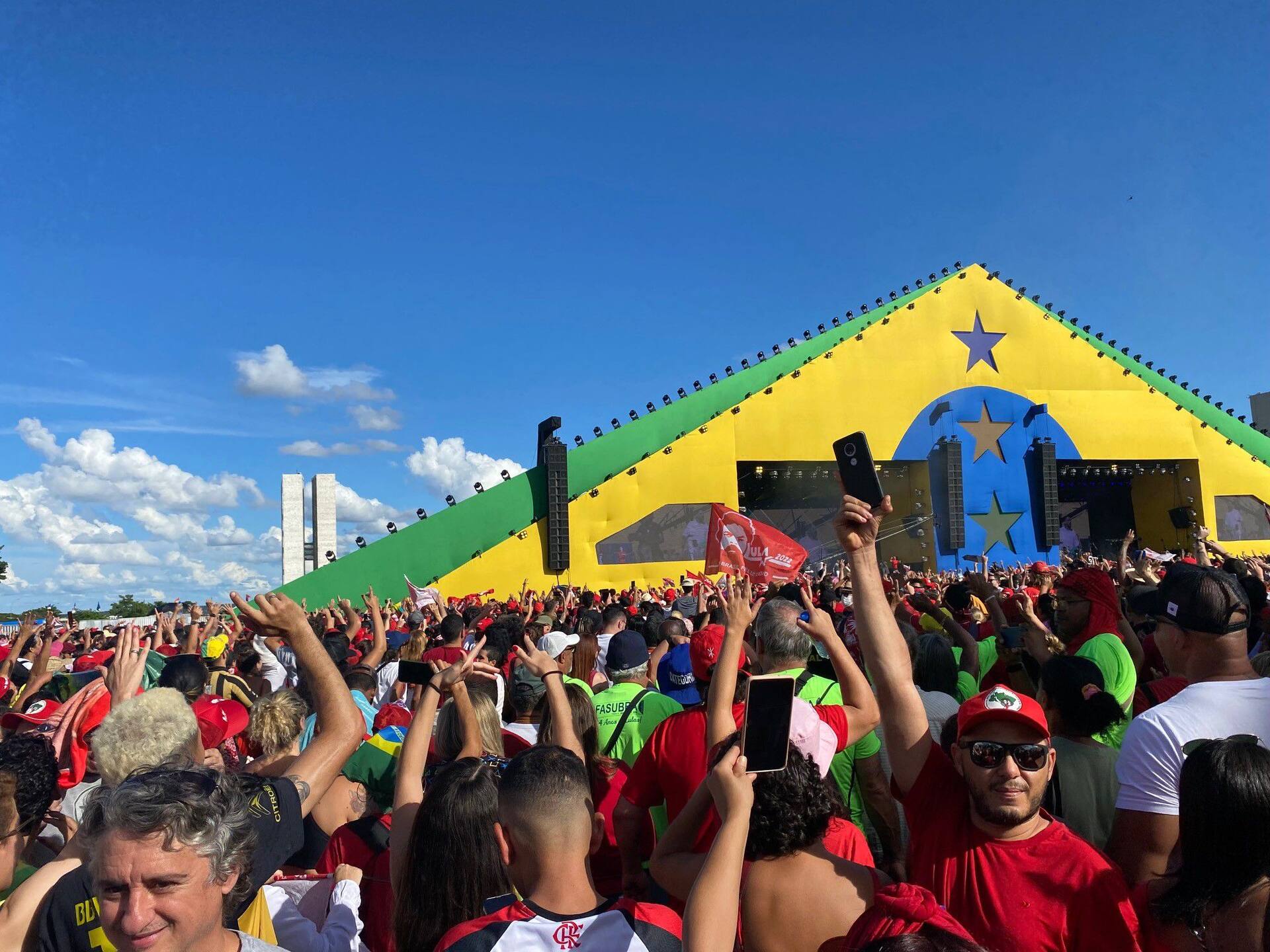
I have met many Bolsanaro supporters ironically through Ana, all male conservatives with good intentions. They fell for some of the lies. They do concede that Lula supports the Greek gift of Democracy. Bolsanaro of course spent months trying to canvas support for campaigns to undermine the election results and to generate support from the military. As a former Captain, it was thought by the media that he would stage a coup until military leaders came out in defiance of Bolsanaro, telling the country they wouldn’t intervene. There is no Crown, such as the one that intervened in Australia against Whitlam or a fascist dictatorship, so Lula is finally charged with one objective, to return Brazil to the path of stability, pathways out of poverty and a stronger democracy. It took Greeks thousands of years to get there. The son of Aristides and Eurídice will now robustly guide Brazil’s democracy away from the path of fascism.
*Billy Cotsis is the author of The Aegean Seven Take Back The Marbles
